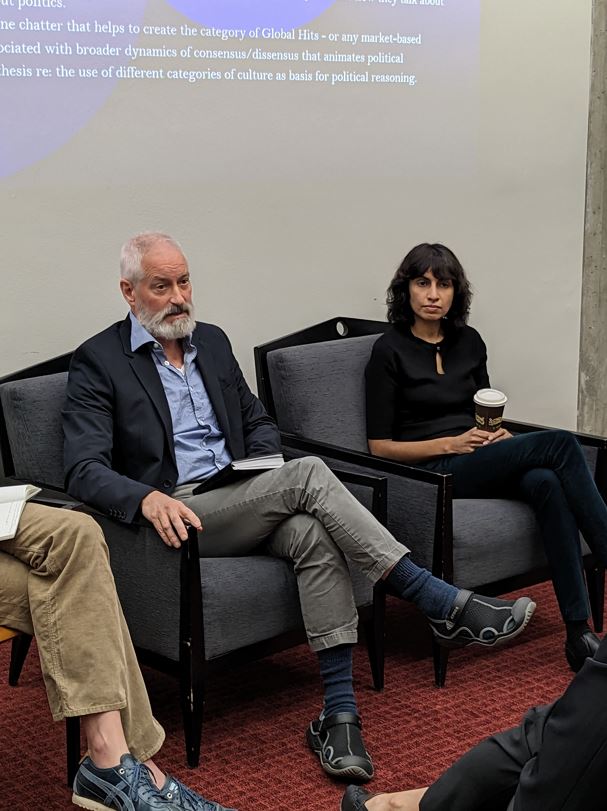Squid Game: Streaming TV in the Platform Era Workshop Provides Platform to Showcase Cutting-Edge Research in Television, Social Media, and Digital Platforms
The November 10-11, 2023 workshop Squid Game: Streaming TV in the Platform Era, sponsored by the Center for East Asian Studies at the University of Chicago and organized by scholars from the University of Chicago and other institutions, provided a dynamic platform to showcase cutting-edge research in television, social media, and digital platforms. With an interdisciplinary focus, the event featured panels from media studies, cultural studies, communication, and political science, highlighting the necessity for comprehensive analyses when exploring the impact of platform media on the global circulation of televisual content. Anchored by the unprecedented success of "Squid Game" on Netflix, participants engaged in discussions ranging from critical examinations of the show's narrative elements to inter-regional comparisons of televisual media in the evolving micro-audience era. Concentrating on television, streaming media, and platforms in East Asia and the United States, the workshop aimed to establish a forward-looking vocabulary for multiple disciplines studying these subjects.
The event's compact schedule boasted a diverse lineup of sessions and speakers. It kicked off with a thought-provoking keynote by Phillip Maciak (Washington University, St. Louis) on "Dump Aesthetics: Streaming, Serialization, Second Screens," offering a novel perspective on the contemporary content-spectator relationship by exploring the different serialities of TV shows, as exemplified by the "dump mode" of "Squid Game." Presentations on the first day included Stephany Noh’s (University of Texas at Austin) examination of the glocal labor conditions of Korean televisual content and Marc Steinberg’s (Concordia University) proposal to examine platforms—such as convenience stores and smartphones—through the aesthetics of "convenience." Closing the day, Dahye Kim (Northwestern University) presented on the interplay between "Squid Game" and economic-political events in the 2020s, and Doobo Shim (Sungshin Women’s University) critiqued the superficial endorsement of globalism in Korean media versus its representation of different races.
The second day continued with similarly interdisciplinary sessions. In the morning, Hoyt Long and Thomas Lamarre (both University of Chicago) explored the popularity of "Squid Game" through the ACG industrial complex in Japan, introducing important concepts like the crisis format and the fan niche market. Shifting focus to the American audience community and examining the social and aesthetic dynamics of viewer response on Reddit, Aarthi Vadde (Duke University) and Richard Jean So (McGill University) proposed studying television culture as a social process with the notion of "TV talk." The afternoon session featured presentations including Deen Freelon’s (University of Pennsylvania) exploration of new methods to study streaming "political talk," and Eunji Kim’s (Columbia University) lab-in-the-field experiments to quantify the political effects of narrative elements in American television shows. The workshop concluded with a keynote lecture by Amanda Lotz (Queensland University of Technology), where she echoed earlier panels and scrutinized the new patterns of screen stories in the era of micro-audiences in the United States.

Centered around the theme of television and platforms, the workshop facilitated a vibrant exchange of ideas and perspectives, showcasing its interdisciplinary richness. Generously sponsored by the Center for East Asian Studies at the University of Chicago with support from a Title VI National Resource Center Grant from the U.S. Department of Education, this event not only provided a comprehensive exploration of the impact of streaming platforms but also laid the groundwork for future collaborative endeavors in diverse fields.
Written by Ziyi Lin (PhD student in the Department of East Asian Languages and Civilizations)
 THE UNIVERSITY OF CHICAGO
THE UNIVERSITY OF CHICAGO

